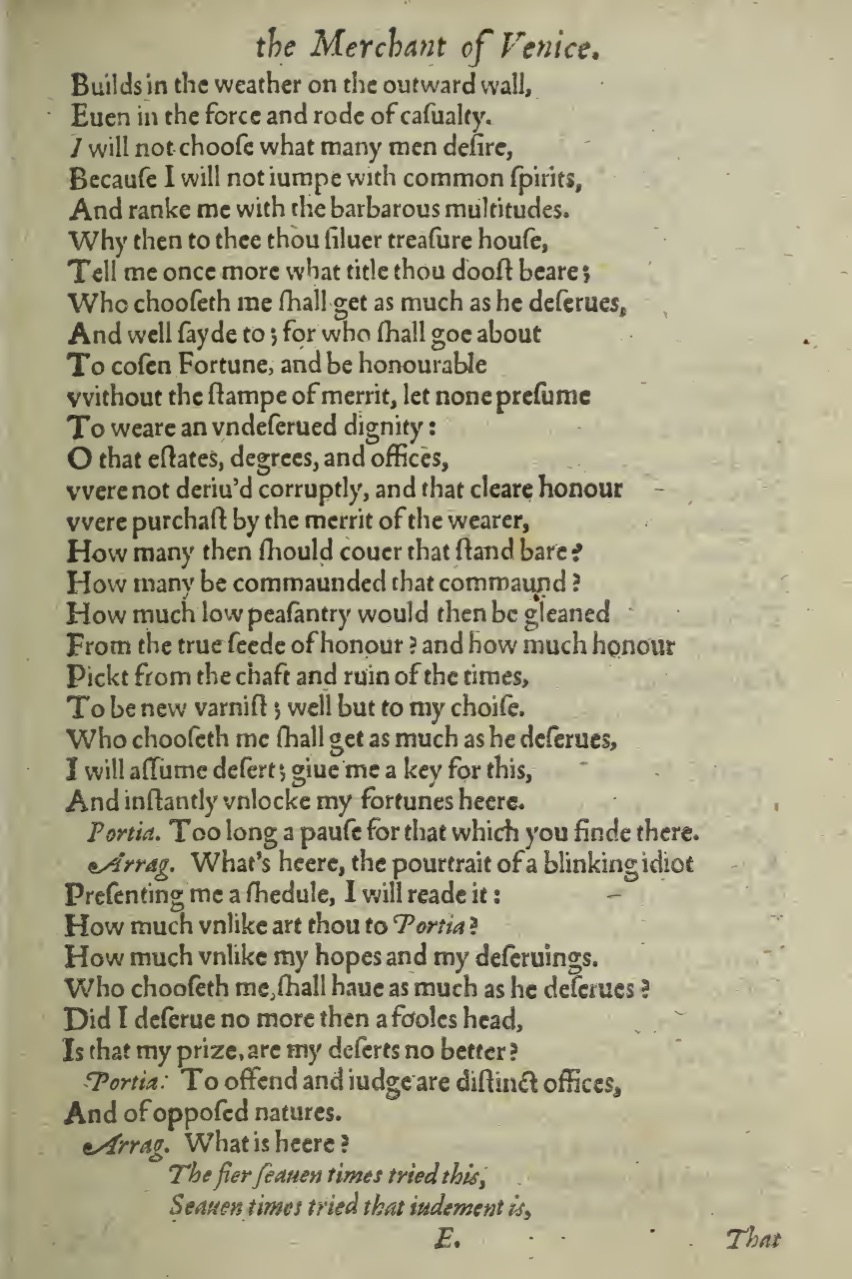Builds in the weather on the outward wall,
Euen in the force and rode of casualty.
I will not choose what many men desire,
Because I will not iumpe with common spirits,
And ranke me with the barbarous multitudes.
Why then to thee thou
siluer trea
sure hou
se,
Tell me once more what title thou doo
st beare;
Who chooseth me shall get as much as he deserues,
And well
sayde to; for who
shall goe about
To co
sen Fortune, and be honourable
without the
stampe of merrit, let none pre
sume
To weare an vndeserued dignity:
O that e
states, degrees, and o
ffices,
were not deriu'd corruptly, and that cleare honour
were purcha
st by the merrit of the wearer,
How many then
should couer that
stand bare?
How many be commaunded that commaund?
How much low pea
santry would then be gleaned
From the true
seede of honour? and how much honour
Pickt from the chaft and ruin of the times,
To be new varni
st; well but to my choi
se.
Who chooseth me shall get as much as he deserues,
I will assume desert; giue me a key for this,
And instantly vnlocke my fortunes here.
Portia. Too long a pause for that which you finde there.
Arrag. What's heere, the pourtrait of a blinking idiot
Presenting me a shedule, I will reade it:
How much vnlike art thou to
Portia?
How much vnlike my hopes and my de
seruings.
Who choo
seth me,
shall haue as much as he
deserues?
Did I deserue no more then a fooles head,
Is that my prize, are my deserts no better?
Portia. To o
ffend and iudge are di
stin
ct o
ffices,
The fier seauen times tried this,
Seauen times tried that iudement is,
E.
That
